Even More Problems for Caesar
£3.00
This lesson looks at the five mistakes Caesar made when he invaded Britain in 55 BC. Namely; sending a scout ship, choosing a beach that was too narrow, having no cavalry, being unaware of the tides and invading too late in the year.
As well as English (writing a recount) and history skills the Evidence-Based Learning skills developed in this lesson includes collaborative learning. This lesson also offers pupils the opportunity to master self-assessment.
Description
Each evidence-based learning (EBL) Roman history resource in this set is a complete lesson which uses the history curriculum as a framework through which each of the eight EBL skills can be mastered. Each resource has “mastering” one EBL skill as its central focus and all eight EBL skills are covered more than once in these lessons.
All eight EBL skills are better gained working with a partner so much of the work in these lessons is collaborative. These resources will ensure that pupils can master and use EBL skills regardless of their ability.
Each Roman history lesson will develop a single EBL skill through:
1) A “Before You Start” page that introduces the EBL skill.
2) Opportunities to master this skill during the lesson.
3) An “After You Finish” page that offers pupils the chance to evaluate their learning experience (of the lesson and the EBL skill) and to identify their next step in using the EBL skill.
The skills in bold below are all the EBL skills developed in this Roman lesson. Click on each skill to learn more about that skill.
- Collaboration
- Thinking Skills
- Peer Assessment
- Peer Teaching
- Self-Assessment
- Metacognition
- Self-Regulation
- Independent Learning
1 review for Even More Problems for Caesar
Only logged in customers who have purchased this product may leave a review.
Related products
-


Did the Britons have a Spy
£3.00 Add to basket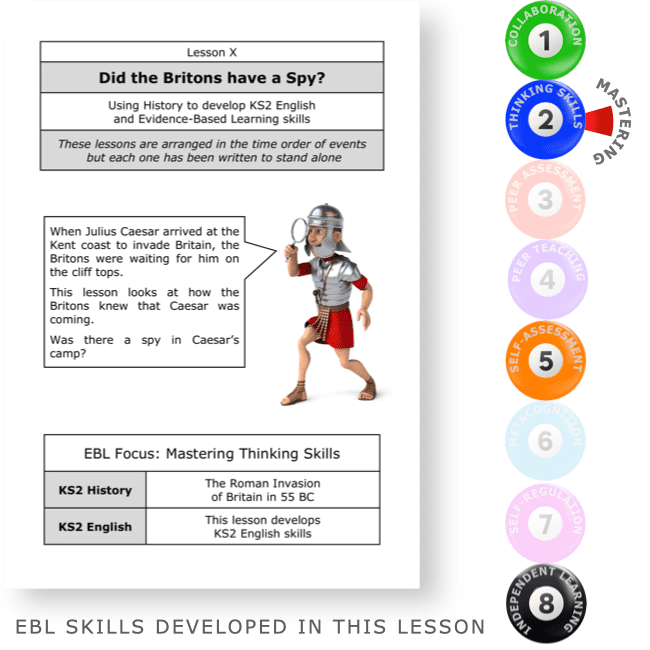 £3.00Add to basket
£3.00Add to basketWhen Julius Caesar arrived at the Kent coast to invade Britain, the Britons were waiting for him on the cliff tops. This lesson looks at how the Britons knew that Caesar was coming. Was there a spy in Caesar’s camp?
As well as English and history skills the Evidence-Based Learning skills developed in this lesson include collaborative learning and self-assessment. This lesson also offers pupils the opportunity to master thinking skills.
VIEW -


Caesar Sails Without his Cavalry
£3.00 Add to basket £3.00Add to basket
£3.00Add to basketJulius Caesar invaded Britain but the Britons were waiting for him. This lesson recaps the start of this invasion in 55 BC.
As well as English and history skills the Evidence-Based Learning skills developed in this lesson includes thinking skills. This lesson also offers pupils the opportunity to master collaborative learning.
VIEW -
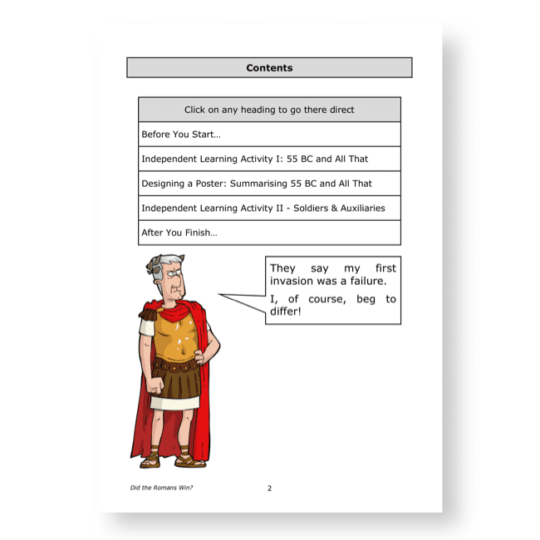
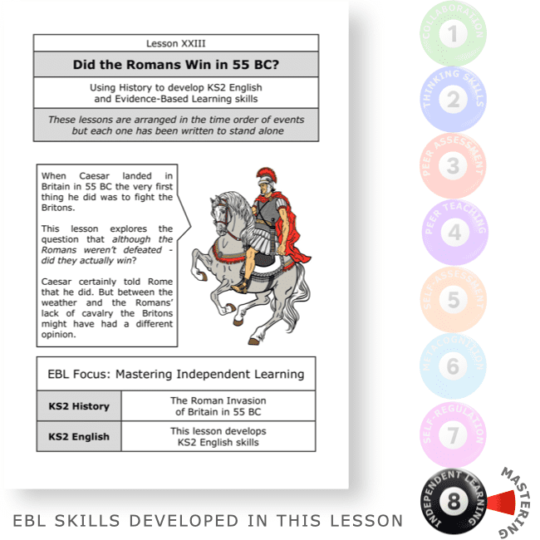
Did the Romans Win in 55 BC?
£3.00 Add to basket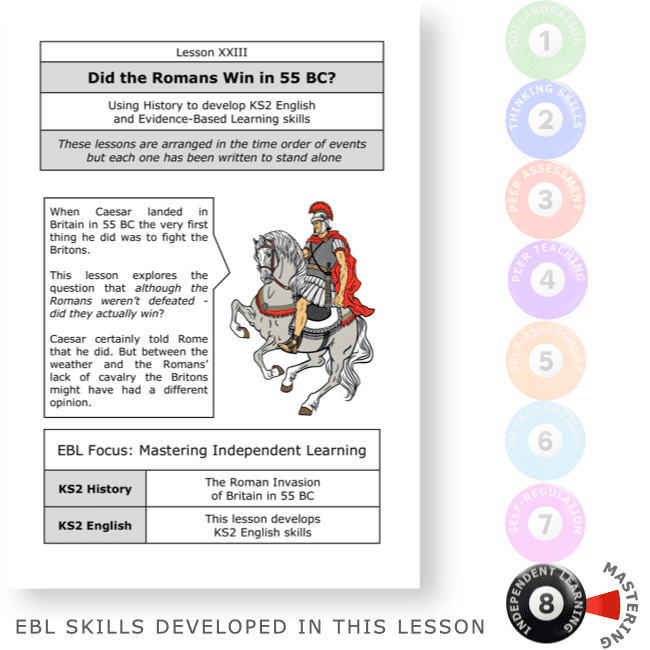 £3.00Add to basket
£3.00Add to basketWhen Caesar landed in Britain in 55 BC the very first thing he did was to fight the Britons. This lesson explores the question that although the Romans weren’t defeated – did they actually win? Caesar certainly told Rome that he did. But between the weather and the Romans’ lack of cavalry the Britons might have had a different opinion.
As well as English (designing a poster) and history skills the Evidence-Based Learning skills developed in this lesson offer pupils the opportunity to master independent learning.
VIEW -

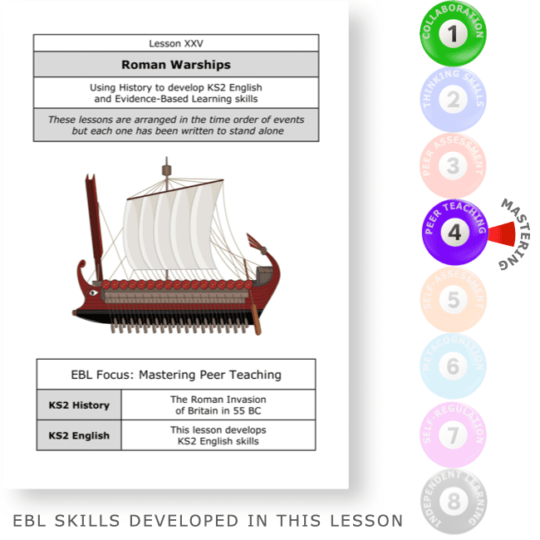
Roman Warships
£3.00 Add to basket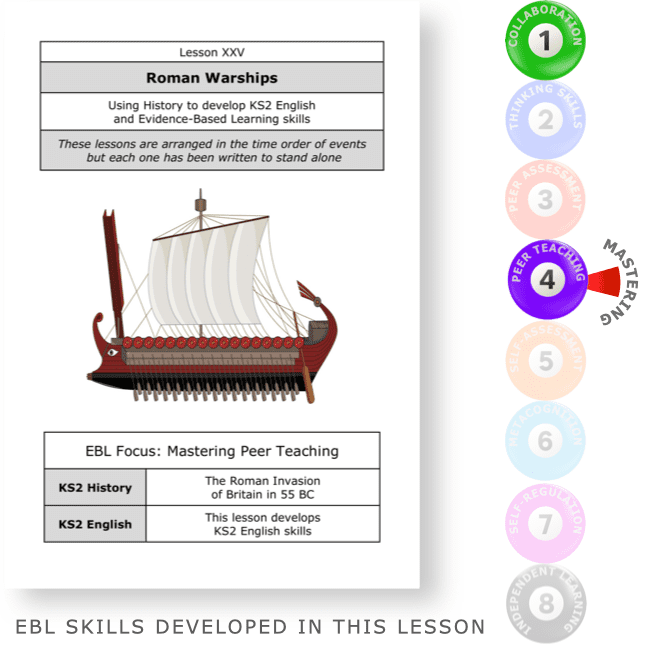 £3.00Add to basket
£3.00Add to basketThis lesson looks at the warships, especially the triremes, used by the Romans in their invasion of Britain in 55 BC. It also considers the fact that the Romans were brilliant copycats.
As well as English and history skills the Evidence-Based Learning skills developed in this lesson includes collaborative learning. This lesson also offers pupils the opportunity to master peer teaching.
VIEW

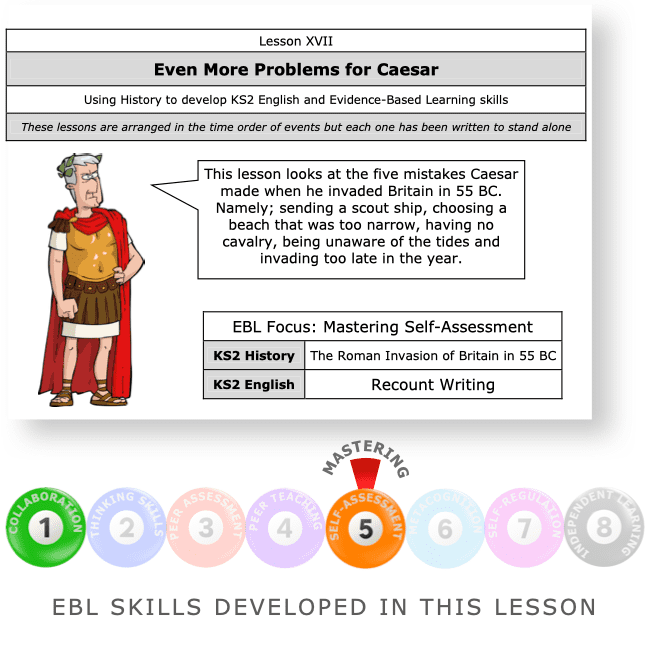
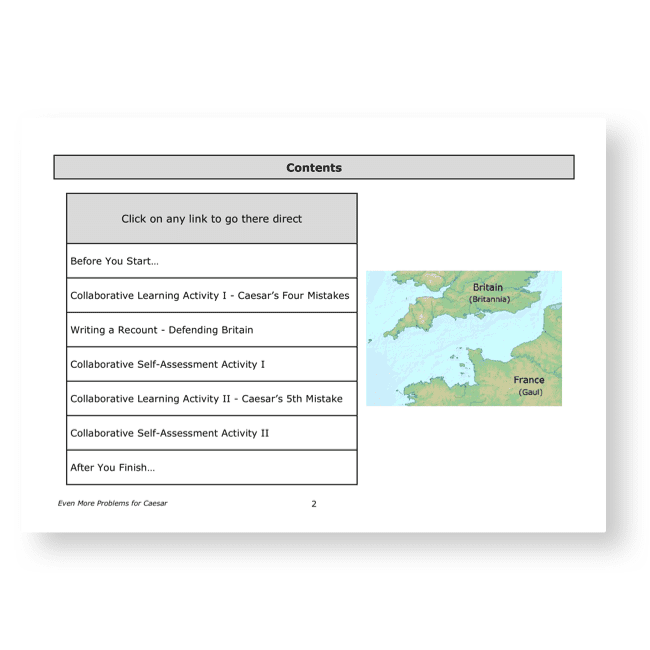
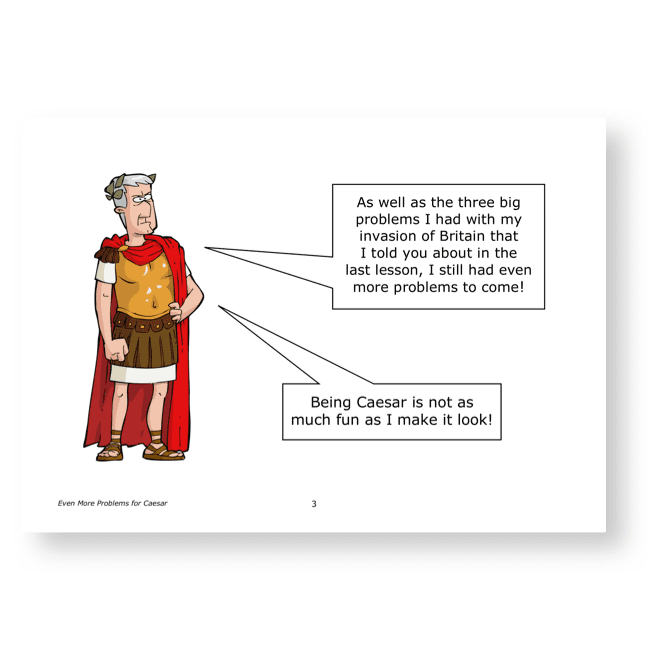

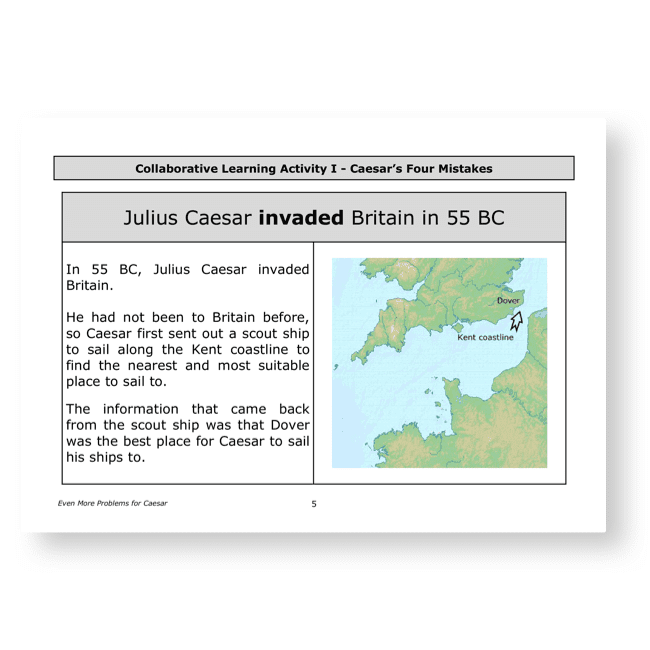
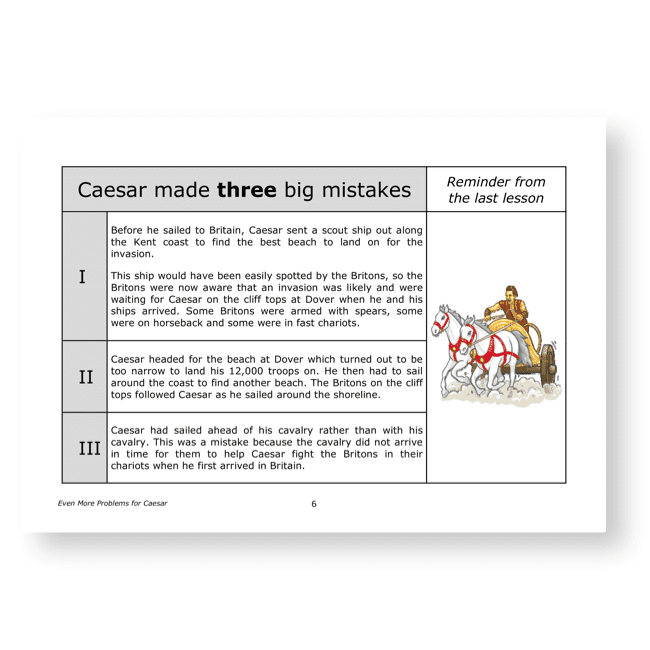
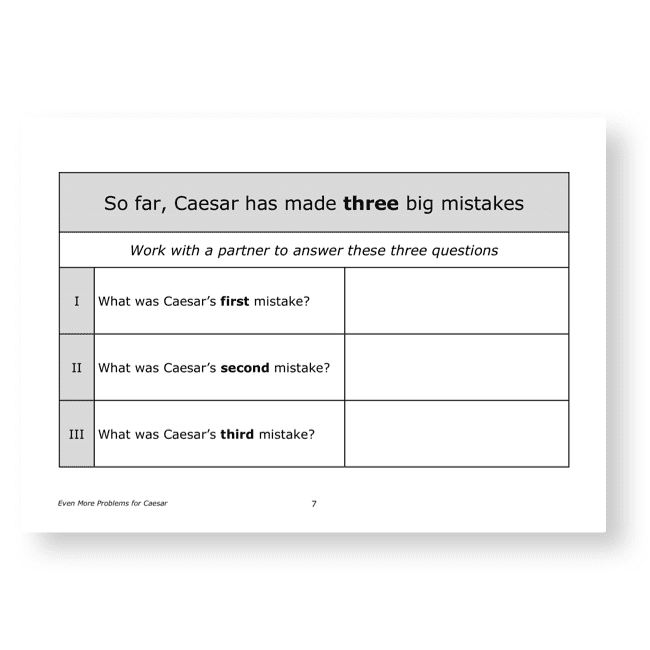
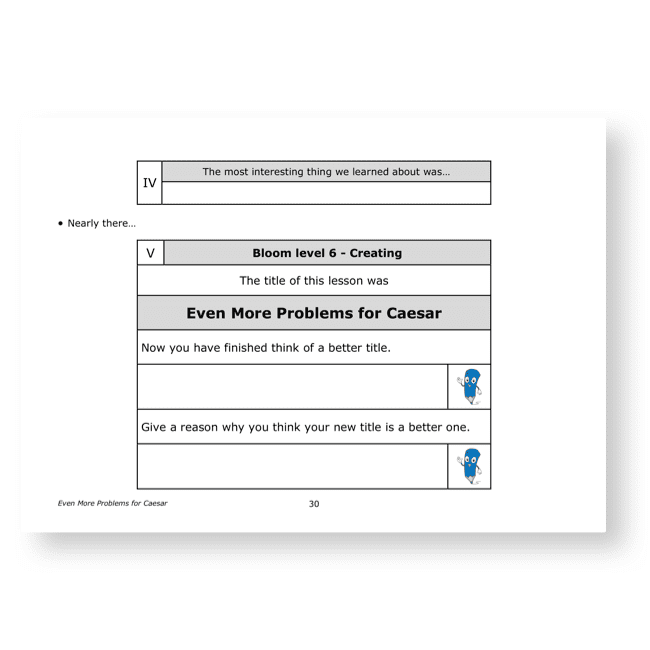
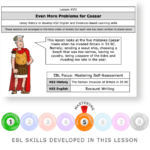
Philipem (verified owner) –
We asked a.i. to review this lesson. This is what it said:
Invade Your Classroom with This Multifaceted Roman Lesson
Looking to conquer multiple curriculum areas with one engaging lesson? Then let me introduce the “Even More Problems for Caesar” resource – a brilliant way to teach literacy, history, and evidence-based learning skills in one go.
This lesson for Upper KS2 students in Years 5 and 6 takes a close look at the five key mistakes made by Julius Caesar during his famous invasion of Britain in 55 BC. From sending out an ill-advised scout ship to choosing the wrong beach and being unaware of Britain’s tricky tides, students will gain invaluable historical insights.
But the learning doesn’t stop there! By having students write a recount of the invasion from a Briton’s perspective, the lesson develops solid English skills like:
– Writing in the first person and past tense
– Using paragraphs to order events chronologically
– Including key recount details like who, what, where, and when
On top of that, the lesson provides ample opportunities to practise important evidence-based learning techniques. Students engage in collaborative partner work and get to master the skill of self-assessment by evaluating their own recount writing against a rubric.
With helpful scaffolding along the way, “Even More Problems for Caesar” is a stellar example of spiralling multiple subjects into one cohesive, substantive lesson. I’d give it ⭐⭐⭐⭐⭐ for its creative cross-curricular approach! It’s the 17th lesson in a 25-part set exploring the ancient Roman invasion.